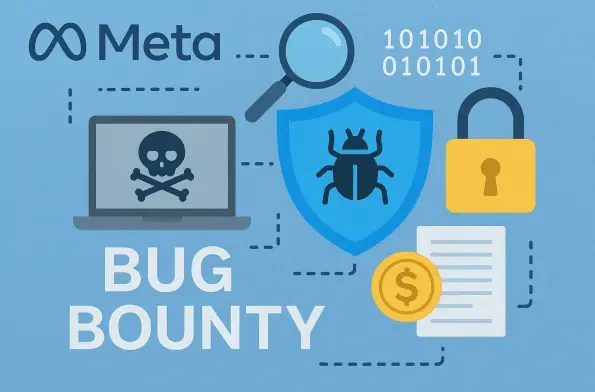Introduction to Meta’s Bug Bounty Milestone
In an era where digital security breaches can cost companies billions and erode user trust overnight, Meta has taken a bold step by disbursing a staggering $4 million through its bug bounty program this year, highlighting the critical importance of cybersecurity. This initiative, aimed at identifying and mitigating vulnerabilities across its vast ecosystem, underscores the need to maintain the integrity of platforms used by billions worldwide. From virtual reality headsets to messaging apps, the scope of potential threats is immense, setting the stage for a deeper exploration of how Meta is fortifying its defenses against increasingly sophisticated cyber risks.
The significance of this payout extends beyond mere numbers, reflecting a proactive commitment to safeguarding user data and system integrity. With a cumulative total of over $25 million awarded since the program’s inception, Meta has positioned itself as a leader in engaging the global security research community. This report delves into the specifics of this year’s findings, industry challenges, and the strategic implications for the future of cybersecurity.
Detailed Analysis of Meta’s Bug Bounty Program
Scope and Impact of the Initiative
Meta’s bug bounty program stands as a cornerstone of its cybersecurity strategy, having evolved into one of the most comprehensive efforts in the tech industry. This year alone, the company received around 13,000 vulnerability reports from researchers worldwide, with 800 qualifying for monetary rewards. The $4 million payout highlights not only the scale of participation but also the critical nature of the flaws uncovered across key platforms such as Quest VR and WhatsApp.
The program’s focus on diverse technologies demonstrates Meta’s recognition of the multifaceted threats in today’s digital landscape. By incentivizing ethical hacking, the company taps into a global pool of talent to identify weaknesses before malicious actors can exploit them. This collaborative approach has become a benchmark for how tech giants can address security in an interconnected world.
Key Vulnerabilities Addressed This Year
Quest VR Headset Security Concern
Among the most alarming discoveries was a vulnerability identified as CVE-2025-59489, affecting Unity applications on Quest VR headsets. This flaw had the potential to allow malicious applications to manipulate Unity apps and execute arbitrary code, posing a significant risk to user safety and data security. The severity of this issue necessitated immediate action to prevent exploitation in a rapidly growing virtual reality market.
Meta’s response involved not only patching the flaw but also partnering with industry counterparts like Microsoft and Steam to tackle shared security challenges. This cross-industry collaboration reflects a growing trend of collective responsibility in addressing vulnerabilities that transcend individual company boundaries. Such efforts are crucial in maintaining trust in emerging technologies like VR.
WhatsApp Privacy and Validation Risks
Another critical finding came from researchers at the University of Vienna, who developed a method to enumerate WhatsApp accounts on a large scale using open-source tools. By generating and verifying phone numbers associated with accounts, they accessed publicly available data, raising serious privacy concerns. This discovery underscores the persistent challenges messaging platforms face in protecting user information from sophisticated exploitation techniques.
In addition, an internal Meta analyst identified an incomplete validation flaw within WhatsApp that could enable attackers to process content from arbitrary URLs on a user’s device. This vulnerability highlights the complexity of securing applications with billions of users against nuanced attack vectors. Both findings emphasize the urgent need for robust safeguards in widely used communication tools.
Challenges in Protecting Complex Ecosystems
Securing platforms like WhatsApp, with its intricate client and server infrastructure, remains a daunting task for Meta. These high-priority targets attract relentless attention from attackers, yet identifying vulnerabilities in such systems is often a slow and intricate process. The sheer scale of user interactions and data flow adds layers of difficulty to preemptive threat detection.
Moreover, the evolving sophistication of attack methods compounds these challenges, as adversaries continuously adapt to bypass existing defenses. Privacy concerns in messaging apps persist as a focal point for both users and regulators, pushing companies to balance functionality with stringent security measures. Meta’s ongoing struggle to stay ahead of these threats illustrates the broader industry challenge of safeguarding digital ecosystems.
Meta’s Strategic Response and Innovations
In addressing these hurdles, Meta has introduced the WhatsApp Research Proxy, a specialized tool designed to assist in analyzing the app’s network protocols. Initially rolled out to a select group of long-term bug bounty participants, the company plans to broaden access to additional researchers over time. This initiative aims to empower the security community with resources to uncover hidden vulnerabilities more effectively.
Beyond tool development, Meta’s substantial financial rewards signal a strong commitment to incentivizing research. By valuing the contributions of external experts, the company fosters a culture of collaboration that enhances its defensive capabilities. Community feedback continues to shape these efforts, ensuring that solutions remain relevant to emerging threats.
Industry Trends and Competitive Positioning
Meta’s bug bounty program operates within a competitive landscape where other tech giants are also ramping up their security initiatives. Apple’s program, for instance, offers a top payout of $2 million, while Google disbursed $12 million last year and introduced an AI-focused bounty with rewards up to $20,000. Microsoft, meanwhile, has boosted incentives for .NET flaws to $40,000, reflecting a similar push toward ethical hacking.
This industry-wide shift toward rewarding security research indicates a collective recognition of the value in external expertise. Meta’s approach, marked by significant payouts and innovative tools, aligns with this trend, positioning the company as a frontrunner in fostering global collaboration. Such efforts are reshaping how cybersecurity is prioritized across the tech sector.
Future Outlook for Cybersecurity at Meta
Looking ahead, Meta is poised to expand its research tools and deepen engagement with the security community over the coming years, from this year to 2027. Plans to make resources like the WhatsApp Research Proxy more widely available could accelerate vulnerability discovery and mitigation. This strategic focus on empowerment is likely to attract even more talent to the program.
The evolving nature of cyber threats will continue to test Meta’s resilience, necessitating constant innovation and adaptation. Financial incentives, alongside collaborative frameworks, will remain pivotal in staying ahead of attackers. As digital platforms grow in complexity, the company’s ability to anticipate and address risks will define its long-term security posture.
Reflections and Next Steps
Looking back, Meta’s efforts this year through a $4 million bug bounty payout marked a significant chapter in addressing critical vulnerabilities across platforms like Quest VR and WhatsApp. The identification of high-impact flaws and the development of research tools stood out as key achievements that fortified user trust. Collaborative endeavors with industry peers and researchers further amplified the impact of these initiatives.
Moving forward, the emphasis should be on scaling access to advanced tools and sustaining researcher incentives to uncover hidden threats. Meta must also prioritize cross-industry partnerships to tackle shared challenges in emerging technologies. By investing in proactive measures and fostering a global security dialogue, the company can build a more resilient digital future, setting a standard for others to follow.













